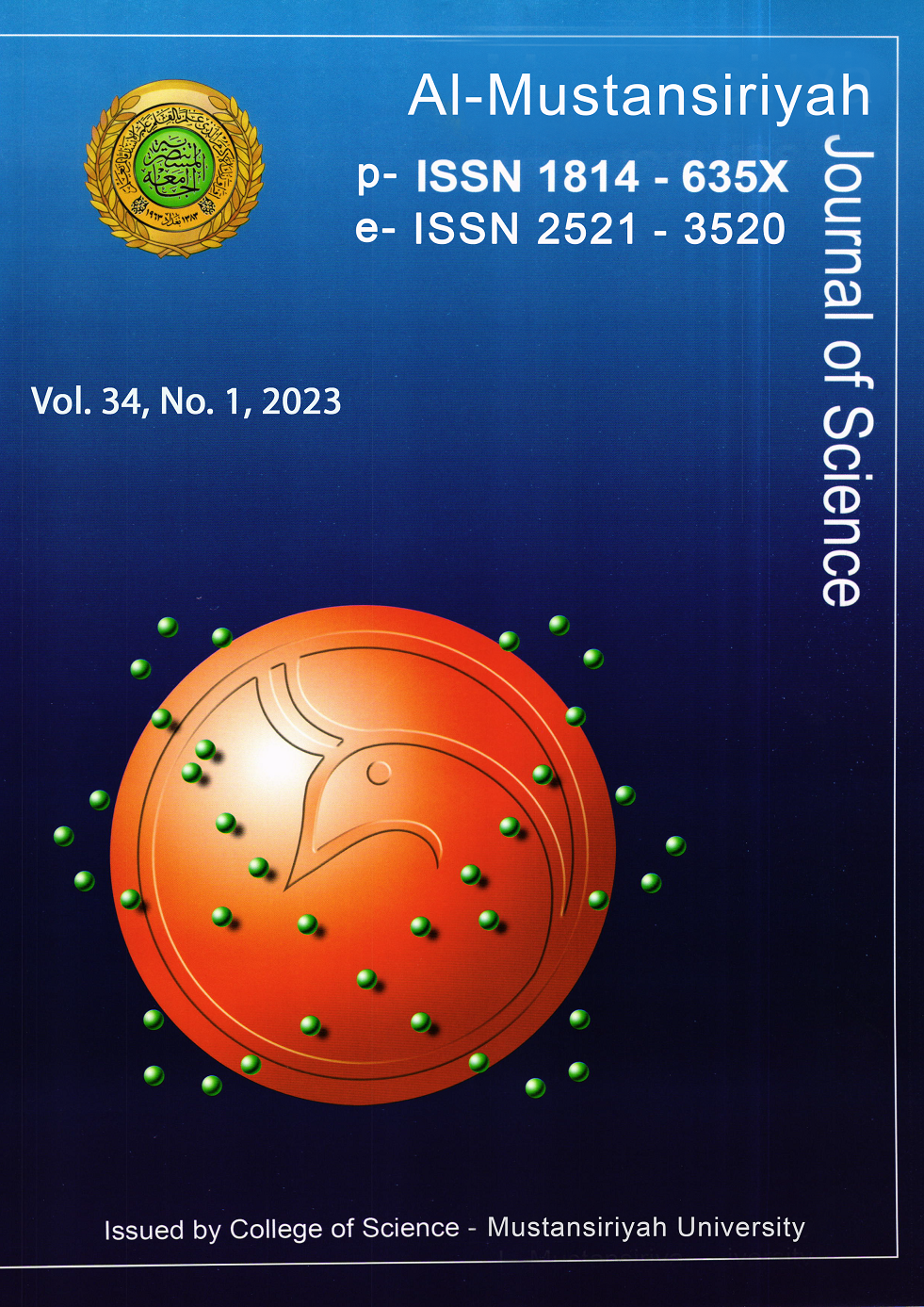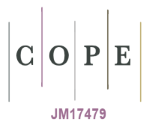CA72-4 as a Promising Prognostic and Diagnostic Biomarker in Iraqi Patients with Colorectal Cancer
DOI:
https://doi.org/10.23851/mjs.v34i1.1198Keywords:
CA72-4, CEA, colorectal cancer, maker, ELISAAbstract
Colorectal cancer (CRC), the second most fatal cancer and the 3rd most common cancer is expected to cause 0.9 million deaths globally in 2025. Carcinoembryonic antigen (CEA) is currently used in the follow-up of patients with colorectal cancer, and in this study, we are trying to find a better marker than CEA in following up on patients' health and knowing the effectiveness of the treatment used and as a diagnostic marker for colorectal cancer. To determine the significance of Cancer antigen 72-4 (CA72-4) as a prognosis predictor in patients with colorectal cancer, compare its prognostic validity to the CEA biomarker. this case-control study includes (150) participants, 100 patients (59 males and 41 females), and 50 healthy controls (26 males, 24 females). Blood samples were collected from all participants to measure the serum concentrations of CA72-4 and CEA using an enzyme-linked immunosorbent assay (ELISA). Between November 2020 and February 2021 in Baghdad, Iraq, this investigation was conducted at the oncology teaching hospital's gastrointestinal consulting clinic. There was a strong positive relation between CA242 and CEA (R = 0.953, p <0.001) and participants with colorectal cancer had considerably greater levels of CA72-4 than healthy controls (p <0.001). AUC was 0.944, sensitivity was 86%, specificity was 94%, and the cutoff value was 50 U/ml for the CA72-4. while AUC was 0.919, sensitivity was 91%, specificity was 80%, and the cutoff value was 5 ng/ml for the CEA.CA72-4 can serve as a potential prognostic and diagnostic biomarker for colorectal cancer.
Downloads
References
Bray, F., Ferlay, J., Soerjomataram, I., Siegel, R. L., Torre, L. A., & Jemal, A. (2018). Global cancer statistics 2018: GLOBOCAN estimates of incidence and mortality worldwide for 36 cancers in 185 countries. CA: a cancer journal for clinicians, 68(6), 394-424.
Andrea, N., Sue, T., & Rajendra, K. (2014). Value of Monitoring Cea in Patients with Colon Cancer Receiving Adjuvant Chemotherapy. Annals of Oncology, 25(2), ii75.
Alrubaiaee, S. A. K. T., & Jawad Kadhim Al-taee, T. (2022). Detection of BRAFV600E Biomarker in Patients With Colorectal Cancer Using Immunohistochemical Techniques/Clinico-Pathological Study. Journal of the Faculty of Medicine Baghdad, 64(1), 47-51.
Aljarshawi, M., Albadree, H., Bahar, H., & Al-Imam, A. (2021). Misleading Presentation of Colorectal Cancer in an Otherwise Healthy Patient. Journal of the Faculty of Medicine Baghdad, 62(4), 132-138.
Dhahir, N. K., & Noaman, A. A. (2021). A Comparative Study of Colorectal Cancer Based on Patient's Age. Journal of the Faculty of Medicine Baghdad, 63(2), 70-73.
H. Mahmood, A., M.H. Zeiny, S., & Sh. Mahmood, A. (2017). Serological markers "CEA test & sAPRIL test" in Iraqi patients with colon cancer. Journal of the Faculty of Medicine Baghdad, 59(4), 317-320.
Al-saady, R. K. (2012). Determination of Cancer Antigen CA15-3 and Carcino Embryonic Antigen CEA concentration as Tumor Markers in Patients with Stomach and Colorectal cancers. 54(3), 256-258.
Hu, P. J., Chen, M. Y., Wu, M. S., Lin, Y. C., Shih, P. H., Lai, C. H., & Lin, H. J. (2019). Clinical evaluation of CA72-4 for screening gastric cancer in a healthy population: A multicenter retrospective study. Cancers, 11(5), 1-8.
Sabbar, M. B., Zeiny, S. M., & Ibrahim, M. J. (2022). Ca242 as a potential prognostic marker in colorectal cancer Iraqi patients. International Journal of Health Sciences, 6(S7), 473-486.
Siegel, R. L., Miller, K. D., Goding Sauer, A., Fedewa, S. A., Butterly, L. F., Anderson, J. C., Cercek, A., Smith, R. A., & Jemal, A. (2020). Colorectal cancer statistics, 2020. CA: A Cancer Journal for Clinicians, 70(3), 145-164.
Vuik, F. E. R., Nieuwenburg, S. A. V., Bardou, M., Lansdorp-Vogelaar, I., Dinis-Ribeiro, M., Bento, M. J., Zadnik, V., Pellisé, M., Esteban, L., Kaminski, M. F., Suchanek, S., Ngo, O., Májek, O., Leja, M., Kuipers, E. J., & Spaander, M. C. W. (2019). Increasing incidence of colorectal cancer in young adults in Europe over the last 25 years. Gut, 1820-1826.
Abancens, M., Bustos, V., Harvey, H., McBryan, J., & Harvey, B. J. (2020). Sexual Dimorphism in Colon Cancer. Frontiers in Oncology, 10(December), 1-27.
White, A., Ironmonger, L., Steele, R. J. C., Ormiston-Smith, N., Crawford, C., & Seims, A. (2018). A review of sex-related differences in colorectal cancer incidence, screening uptake, routes to diagnosis, cancer stage and survival in the UK. BMC Cancer, 18(1), 1-11.
Hussein, A. A., Al-Janabi, S., Naseer, Z. H., & Hamody, T. A. (2017). Epidemiological Study of Cancers in Iraq-Karbala from 2008 to 2015. International Journal of Medical Research & Health Sciences, 6(1), 79-86.
Limsui, D., Vierkant, R. A., Tillmans, L. S., Wang, A. H., Weisenberger, D. J., Laird, P. W., Lynch, C. F., Anderson, K. E., French, A. J., Haile, R. W., Harnack, L. J., Potter, J. D., Slager, S. L., Smyrk, T. C., Thibodeau, S. N., Cerhan, J. R., & Limburg, P. J. (2010). Cigarette smoking and colorectal cancer risk by molecularly defined subtypes. Journal of the National Cancer Institute, 102(14), 1012-1022.
Kastrinos, F., Samadder, N. J., & Burt, R. W. (2020). Use of Family History and Genetic Testing to Determine Risk of Colorectal Cancer. Gastroenterology, 158(2), 389-403.
Fang, Y. J., Lee, L. J. H., Luo, K. H., Fang, P. S., Yang, C. C., & Chuang, H. Y. (2022). The Association of Carcinoembryonic Antigen (CEA) and Air Pollutants-A Population-Based Study. Atmosphere, 13(3), 1-11.
Zhai, H., Huang, J., Yang, C., Fu, Y., & Yang, B. (2018). Serum CEA and CA19-9 levels are associated with the presence and severity of colorectal Neoplasia. Clinical Laboratory, 64(3), 351-356.
Saito, G., Sadahiro, S., Kamata, H., Miyakita, H., Okada, K., Tanaka, A., & Suzuki, T. (2017). Monitoring of Serum Carcinoembryonic Antigen Levels after Curative Resection of Colon Cancer: Cutoff Values Determined according to Preoperative Levels Enhance the Diagnostic Accuracy for Recurrence. Oncology, 92(5), 276-282.
Andrea, N., Sue, T., & Rajendra, K. (2014). Value of Monitoring Cea in Patients with Colon Cancer Receiving Adjuvant Chemotherapy. Annals of Oncology, 25(2), ii75.
Luo, H., Shen, K., Li, B., Li, R., Wang, Z., & Xie, Z. (2020). Clinical significance and diagnostic value of serum NSE, CEA, CA19-9, CA125 and CA242 levels in colorectal cancer. Oncology Letters, 20(1), 742-750.
Huang, X., Lan, Y., Li, E., Li, J., Deng, Q., & Deng, X. (2021). Diagnostic values of MMP-7, MMP-9, MMP-11, TIMP-1, TIMP-2, CEA, and CA19-9 in patients with colorectal cancer. Journal of International Medical Research, 49(5).
Mariampillai, A. I., Cruz, J. P. Dela, Suh, J., Sivapiragasam, A., Nevins, K., & Hindenburg, A. A. (2017). Cancer antigen 72-4 for the monitoring of advanced tumors of the gastrointestinal tract, lung, breast and ovaries. Anticancer Research, 37(7), 3649-3656.
Xu, Y., Zhang, P., Zhang, K., & Huang, C. (2021). The application of CA72-4 in the diagnosis, prognosis, and treatment of gastric cancer. Biochimica et Biophysica Acta - Reviews on Cancer, 1876(2), 188634.
Downloads
Key Dates
Published
Issue
Section
License
Copyright (c) 2023 Al-Mustansiriyah Journal of Science

This work is licensed under a Creative Commons Attribution-NonCommercial 4.0 International License.
(Starting May 5, 2024) Authors retain copyright and grant the journal right of first publication with the work simultaneously licensed under a Creative Commons Attribution (CC-BY) 4.0 License that allows others to share the work with an acknowledgement of the work’s authorship and initial publication in this journal.






















